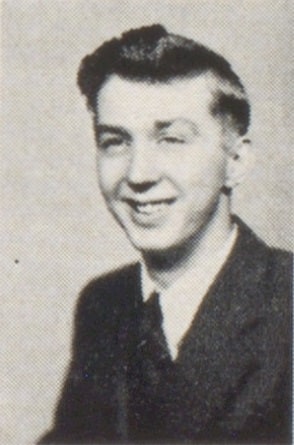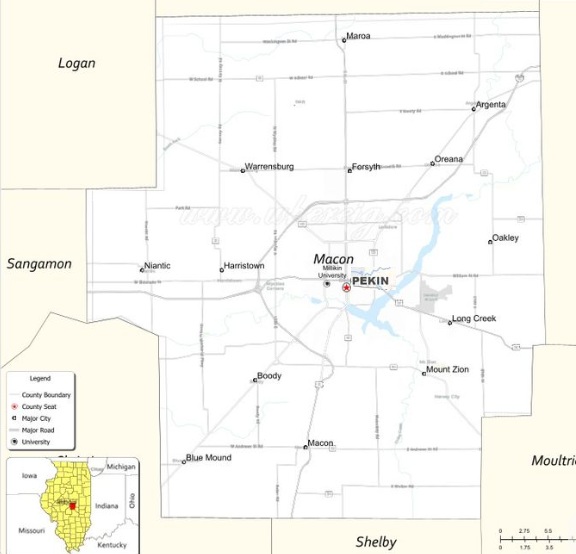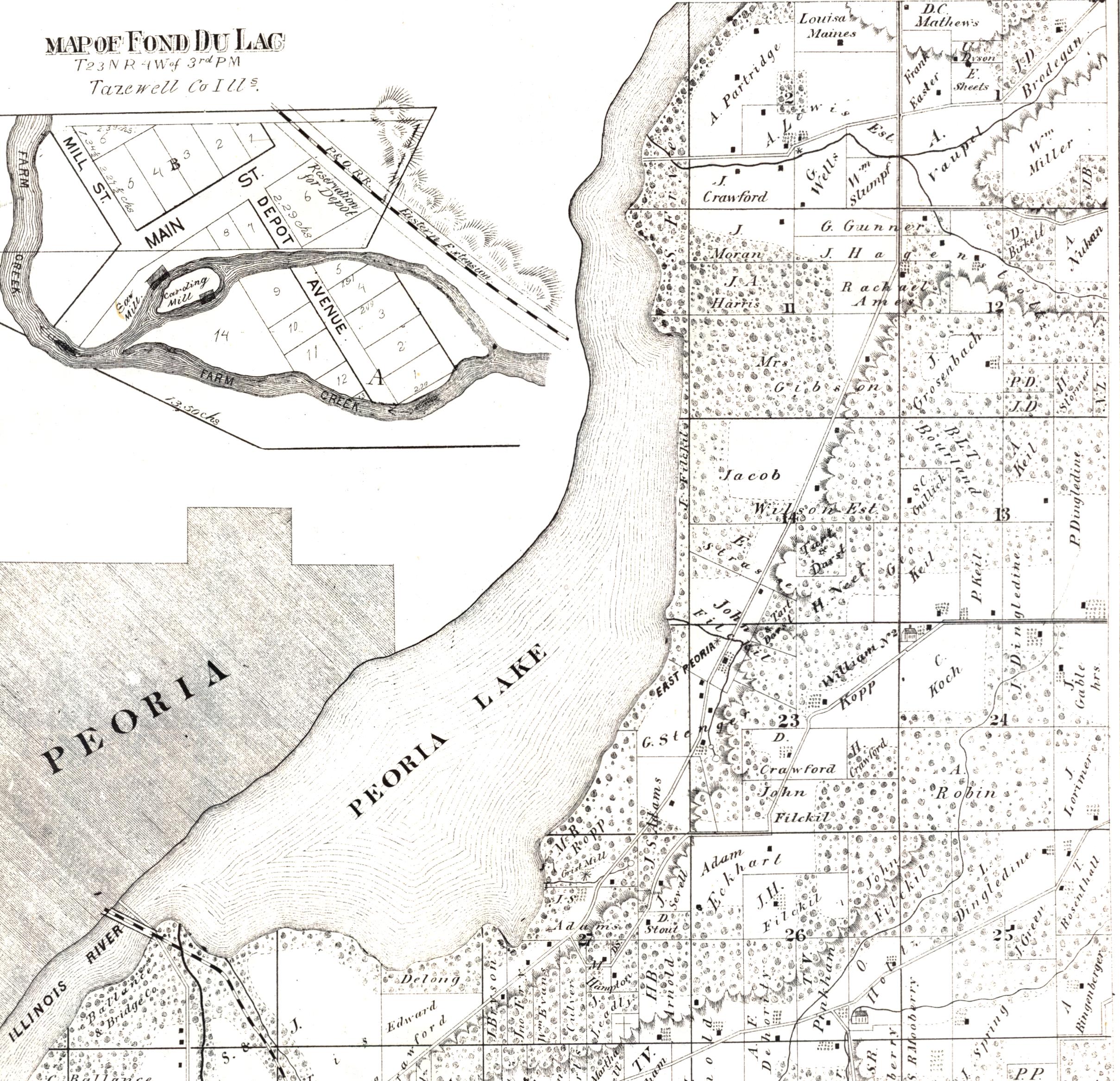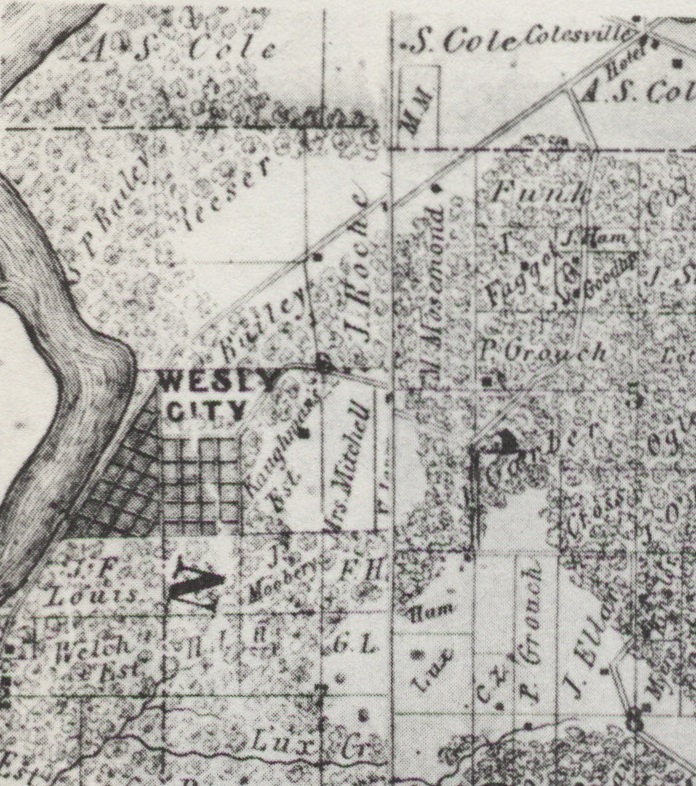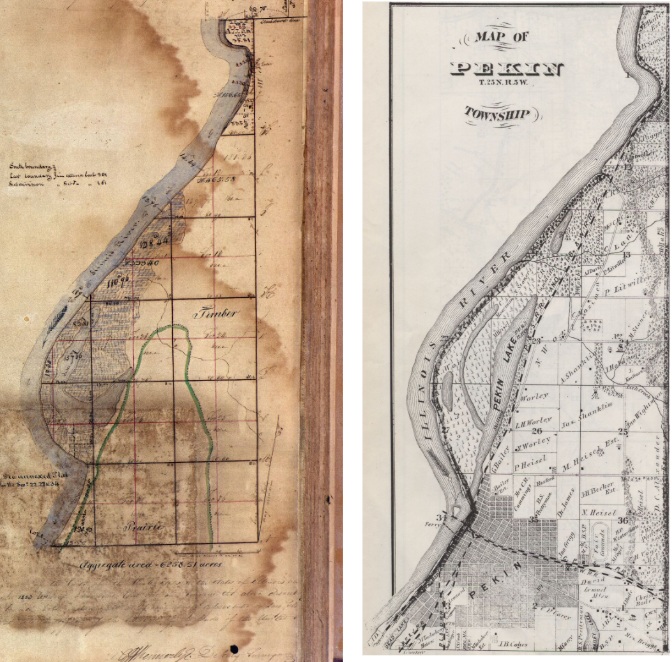This is a reprint of a “From the Local History Room” column that first appeared in December 2013, before the launch of this weblog.
With the passing of another Veterans Day this week, today we will spotlight a book written by one of Pekin’s World War II veterans, the late Robert B. Monge (1925-2008).
Dedicated “to all of the men and women of Tazewell County who made the supreme sacrifice during World War II” and extending to 991 pages including index, photographs and illustrations, Monge’s 1994 book, “WW2 Memories of Love & War: June 1937-June 1946,” tells of Monge’s own wartime experiences, weaving his own story together with the larger historical narrative of the war, along with the stories of many other men from Tazewell County who fought in World War II or were killed in action.
Monge was a 1943 graduate of Pekin Community High School. That same year, he enlisted in the U.S. Marine Corps, as a member of which he fought against Japanese forces in the Pacific Theater. He was discharged with the rank of Corporal on June 17, 1946. After the war, he and his brothers went into business together, founding Monge Bros. Construction. In 1955, he became president of Monge Realty and Investments Inc. in Pekin. While he was best known for his work developing new subdivisions in Pekin, Monge also came to feel a strong desire to record the wartime history of Tazewell County’s men who had been sent off to fight.
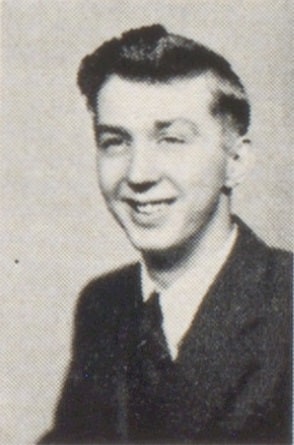
That’s why he compiled “WW2 Memories” and joined with Jack Shepler to write a companion volume, “The Book Eternal,” which is a roll of Tazewell County servicemen who died in World War II and other wars. Monge also served as co-chairman of the effort to place a veterans’ memorial on the Tazewell County Courthouse lawn. The memorial, listing all of Tazewell County’s sacred fallen, was dedicated on Veterans Day in 1995.
The many stories in Monge’s book often provide firsthand accounts of the harrowing ordeals that were endured by the young men sent into battle to put a stop to the racist and imperialist aggression of the Nazis and Fascists in Europe and North Africa and the Empire of Japan in the Pacific and Asia. In addition to his own memories, or those, for example, of his fellow Marine Chuck Dancey, or of the late John T. McNaughton and numerous other veterans who came back from the war, Monge frequently reprints or adapts newspaper reports of local boys killed or reported missing in action. The newspaper reports or obituaries, along with Monge’s larger historical narratives of the war, are informative but not graphic or sensationalized. However, due to the nature of modern warfare, and especially due to the monstrous ideologies that motivated the enemy, the personal narratives in Monge’s book at times make for some grim reading.
In his introductory remarks, Monge explained why he felt driven to devote several years of his life to write his book:
“What must man do to preserve the memory of men who made the ultimate sacrifice – at a time when it meant so much to the world? There comes a time when we must sacrifice our time and energies and make it our duty to do it. Out of W.W. II came a multitude of heroes – those who died on the battlefield and those who lived through its holocaust. . . .
“. . . I found that the families of Tazewell County gave more freely of their sons in all our wars than the country ever expected or required. The dark cobwebs in lost graveyards hide many young men and boys who gave their lives in a past war somewhere. I felt that, at all costs, we must prevent them from being lost in the oblivion of time.
“Probably it was said best by an early author of Tazewell County history: ‘To be forgotten has been the great dread of mankind from the remotest ages.’ All will be forgotten soon enough, in spite of their fame and glory and in spite of our efforts to preserve their memory.
“This is for the present generation to read and find out about their kind and what they stood for and what they died for. It is also for our generation too, to relive the past, in one of the most tumultuous periods in all history, and to remember our dead. Time and its greed cuts everyone down into oblivion. It eventually completes the destruction of the physical man and his cemetery stones, erected in his memory. Eventually they will crumble into dust and blow away – but the preservation of their accomplishments, deeds and their supreme sacrifice will be saved for future generations.”
The ranks of our surviving World War II veterans grows thinner every day – but when the last of them is gone, books such as Monge’s will enable future generations to remember their sacrifices.


